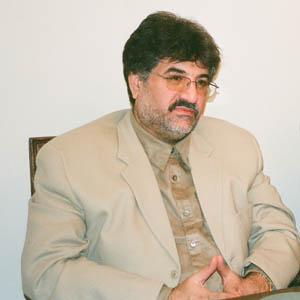What should the 8th parliament do about foreign diplomacy
By Dr. Naser Hadian

Dr. Naser Hadian, former professor of Harvard University and current professor of Tehran University has written an article for Iranian Diplomacy at the brink of the 8th parliamentary election. He believes that the priorities of the 8th parliament in foreign diplomacy are the nuclear issue, regulating ties with the US etc.
In all of the countries, including Iran, it is the executive force that plays a major role in foreign diplomacy both in issues of implementation and development of policies. Since the executive focuses on foreign diplomacy and possesses a body of experts, it is in fact a more powerful agent in this field.
However, the constitution of most of the countries has assumed responsibilities also for the legislative force. By empowering the parliament to approve international treaties and contracts and two- or multi- partite agreements between Iran and other countries, the constitution has given the parliament an opportunity to be active in foreign diplomacy. Legislative assembly is considered as a powerful force based on the constitution and it takes a role in policymaking. Therefore, by the law, the parliament is ought to legislate and the government has to enforce them. Of course what happens in reality is somehow different.
A comparison between the Iranian parliament and those of countries who have a long record in legislation and possess developed parliamentary systems shows that a body of experts has not been formed in the parliament of Iran yet, while in long-recorded parliaments like that of the United States there are 30 staffers for every MP. Hence, legislators’ opinions and decisions are based on experts’ view, while Iran’s parliament lacks such a feature and experts are not taken into consideration. So, in the complicated situation of today’s world and in presence of various states, institutions, organizations and international laws, we can’t expect a member of the Iranian parliament to undertake a major role in development of policies. Even if MPs were able to formulate expert policies in foreign diplomacy, when handed to organizations such as Ministry of Foreign Affairs, with their body of experts, these policies are interpreted and implemented in such a way that the organization can have its own input and of course that is natural.
But about the position of the 7th parliament and its performance in foreign diplomacy of Iran, it must be said that due to the nature of issues in foreign diplomacy, parliaments in Iran can not play an important role. Of course there have been ups and down in this trend. For example the 6th parliament [with reformist majority] enjoyed higher presence of experts and consequently more intervention in foreign diplomacy, but as to the 7th parliament and other previous parliaments, Ministry of Foreign Affairs and other related organizations, play the first role. Based on this, these organizations have entered the realm of legislation and sometime they even influence decisions of the parliament.
Additionally, not only in Iran but in all the world, beside the parliament there are forces beyond the legal limits, usually labeled by the term “lobby forces”, that influence course of foreign diplomacy. These forces are organized around certain issues and to fulfill their own interests, enter domains where they can be influential.
Likewise, in Iran the parliament has not been merely a legislator and the government has not been solely executor of laws. The executive force has had considerable power in policymaking and enforcement of law and there have been other forces too, that whether inside the legal frame or beyond it have played a role in directing foreign diplomacy.
However, in Iran parliaments can be influential in monitoring performance of governments. Islamic Consultative Assembly Research Center was established to form a body of experts and assist the parliament in its supervisory role. But this center and its infrastructure are not at all enough for the parliament to fulfill its acceptable role in foreign diplomacy.
On the other hand, the 8th parliament is going to start its term in a near future. On expectations from this parliament in realm of foreign diplomacy, I believe it’ll not be that much different from the incumbent parliament. Expectations are high, but hope for their fulfillment is low.
In my opinion, the main priorities of foreign diplomacy in which the parliament must intervene and take a role are: finalizing the nuclear issue, determining the role of Western and Eastern European countries and Asian countries in Iran’s foreign diplomacy, acquiring a correct understanding of the world, considering the issue of Iraq, and regulating rational relationship with international organizations and institutions.

